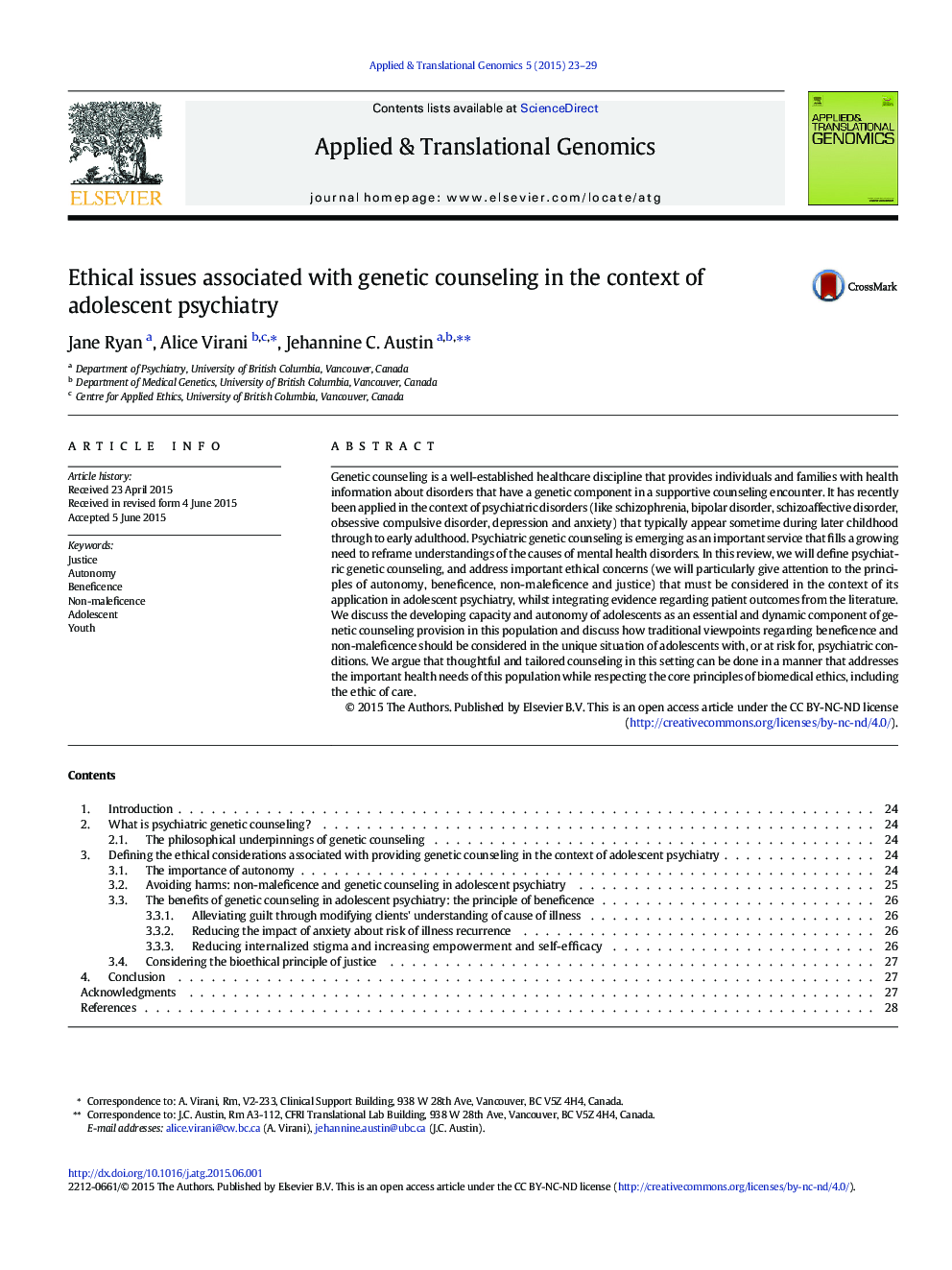| کد مقاله | کد نشریه | سال انتشار | مقاله انگلیسی | نسخه تمام متن |
|---|---|---|---|---|
| 2772928 | 1567890 | 2015 | 7 صفحه PDF | دانلود رایگان |
Genetic counseling is a well-established healthcare discipline that provides individuals and families with health information about disorders that have a genetic component in a supportive counseling encounter. It has recently been applied in the context of psychiatric disorders (like schizophrenia, bipolar disorder, schizoaffective disorder, obsessive compulsive disorder, depression and anxiety) that typically appear sometime during later childhood through to early adulthood. Psychiatric genetic counseling is emerging as an important service that fills a growing need to reframe understandings of the causes of mental health disorders. In this review, we will define psychiatric genetic counseling, and address important ethical concerns (we will particularly give attention to the principles of autonomy, beneficence, non-maleficence and justice) that must be considered in the context of its application in adolescent psychiatry, whilst integrating evidence regarding patient outcomes from the literature. We discuss the developing capacity and autonomy of adolescents as an essential and dynamic component of genetic counseling provision in this population and discuss how traditional viewpoints regarding beneficence and non-maleficence should be considered in the unique situation of adolescents with, or at risk for, psychiatric conditions. We argue that thoughtful and tailored counseling in this setting can be done in a manner that addresses the important health needs of this population while respecting the core principles of biomedical ethics, including the ethic of care.
Journal: Applied & Translational Genomics - Volume 5, 1 June 2015, Pages 23–29
